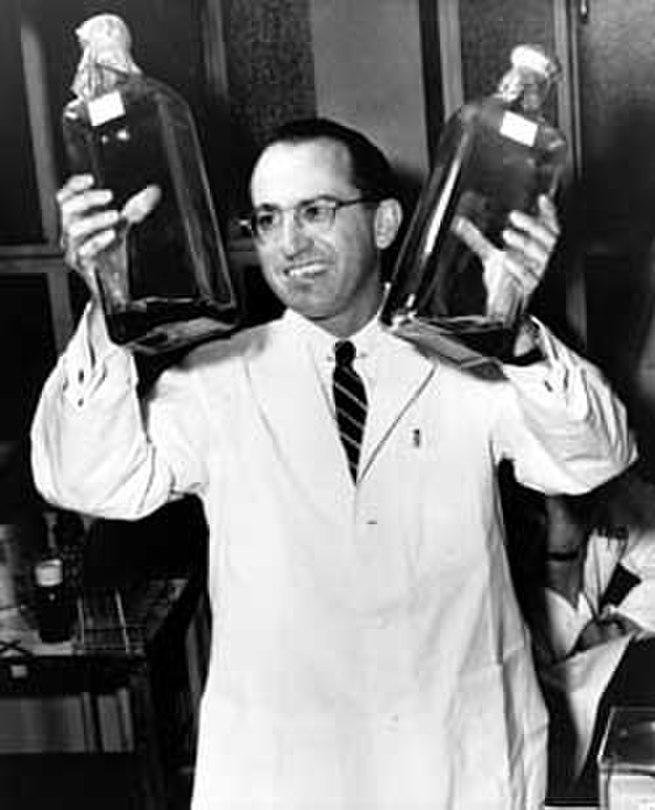
-
Vaccine
A vaccine is a biological preparation that provides active acquired immunity to a particular disease. A vaccine typically contains an agent that resembles a disease-causing microorganism and is often made from weakened or killed forms of the microbe, its toxins, or one of its surface proteins. The agent stimulates the body’s immune system to recognize the agent as a threat, destroy it, and to further recognize and destroy any of the microorganisms associated with that agent that it may encounter in the future. Vaccines can be prophylactic (example: to prevent or ameliorate the effects of a future infection by a natural or “wild” pathogen), or therapeutic (e.g., vaccines against cancer are being investigated).
The administration of vaccines is called vaccination. Vaccination is the most effective method of preventing infectious diseases; widespread immunity due to vaccination is largely responsible for the worldwide eradication of smallpox and the restriction of diseases such as polio, measles, and tetanus from much of the world. The effectiveness of vaccination has been widely studied and verified; for example, the influenza vaccine, the HPV vaccine, and the chicken pox vaccine. The World Health Organization (WHO) reports that licensed vaccines are currently available for twenty-five different preventable infections.
The terms vaccine and vaccination are derived from Variolae vaccinae (smallpox of the cow), the term devised by Edward Jenner to denote cowpox. He used it in 1798 in the long title of his Inquiry into the Variolae vaccinae known as the Cow Pox, in which he described the protective effect of cowpox against smallpox. In 1881, to honor Jenner, Louis Pasteur proposed that the terms should be extended to cover the new protective inoculations then being developed.
-
Serum (noun)
The clear yellowish liquid obtained upon separating whole blood into its solid and liquid components after it has been allowed to clot. Also called blood serum.
-
Serum (noun)
Blood serum from the tissues of immunized animals, containing antibodies and used to transfer immunity to another individual, called antiserum.
-
Serum (noun)
A watery liquid from animal tissue, especially one that moistens the surface of serous membranes or that is exuded by such membranes when they become inflamed, such as in edema or a blister.
-
Serum (noun)
The watery portion of certain animal fluids, as blood, milk, etc; whey.
-
Serum (noun)
An intensive moisturising product to be applied after cleansing but before a general moisturiser.
-
Vaccine (noun)
A substance given to stimulate the body’s production of antibodies and provide immunity against a disease without causing the disease itself in the treatment, prepared from the agent that causes the disease, or a synthetic substitute.
